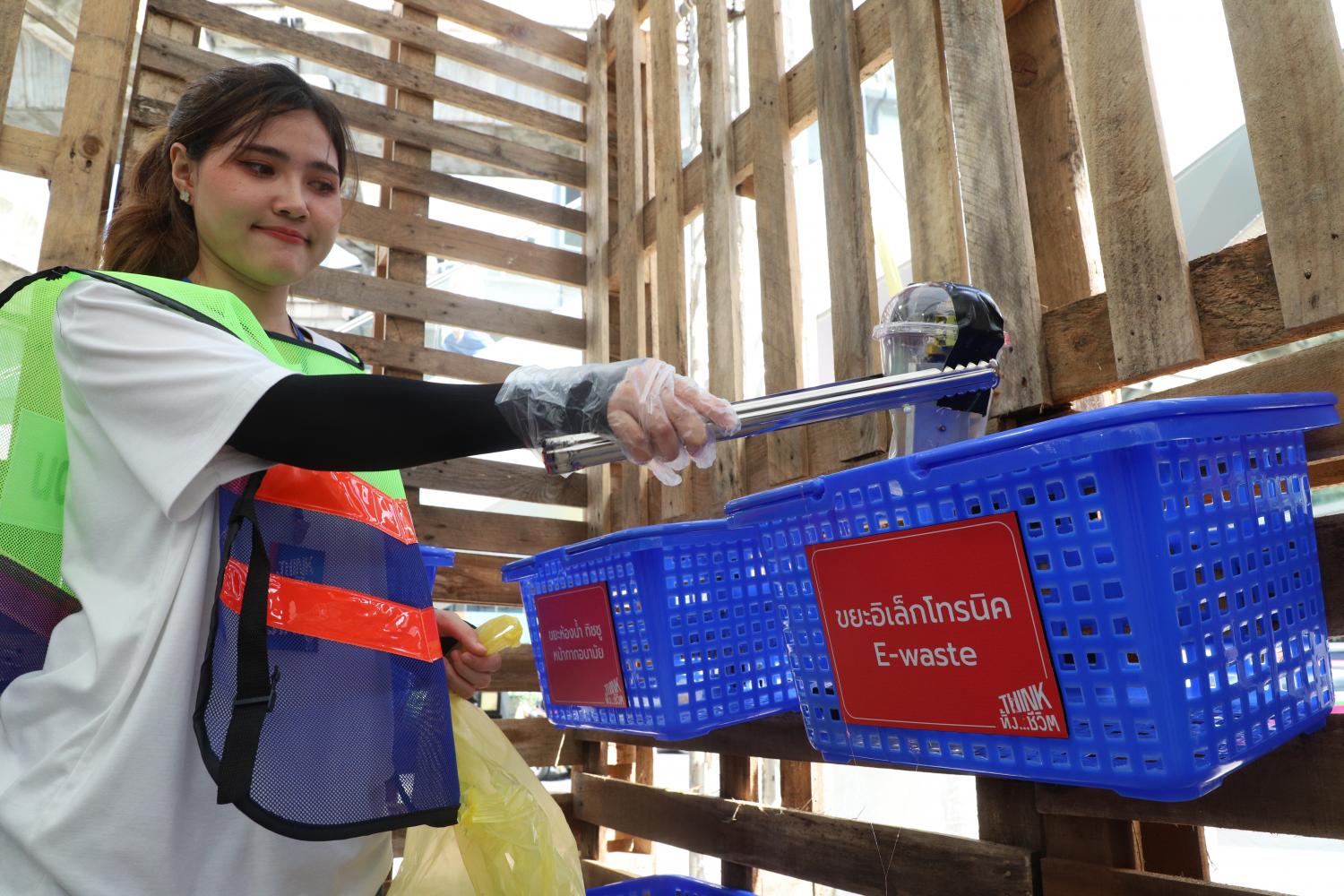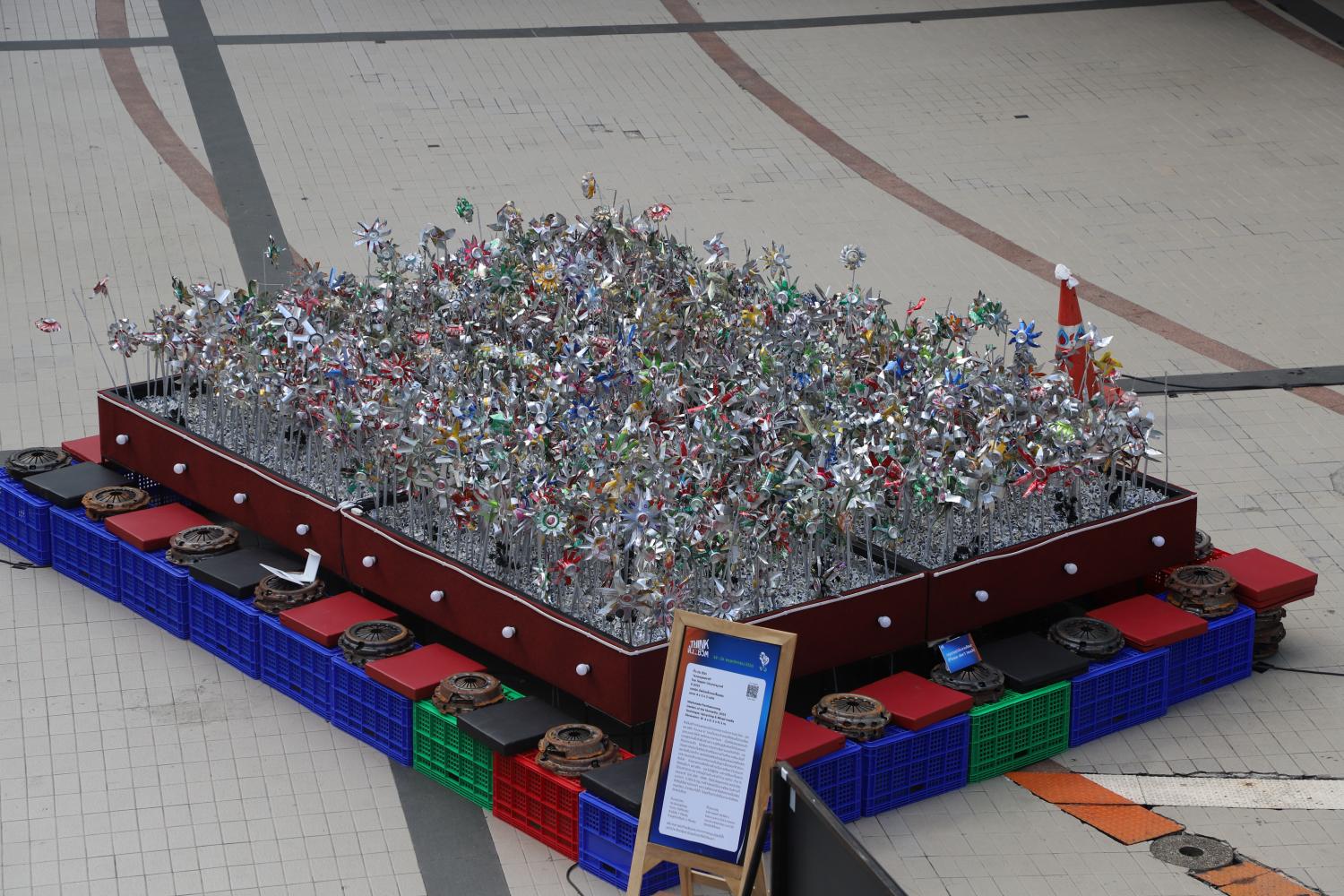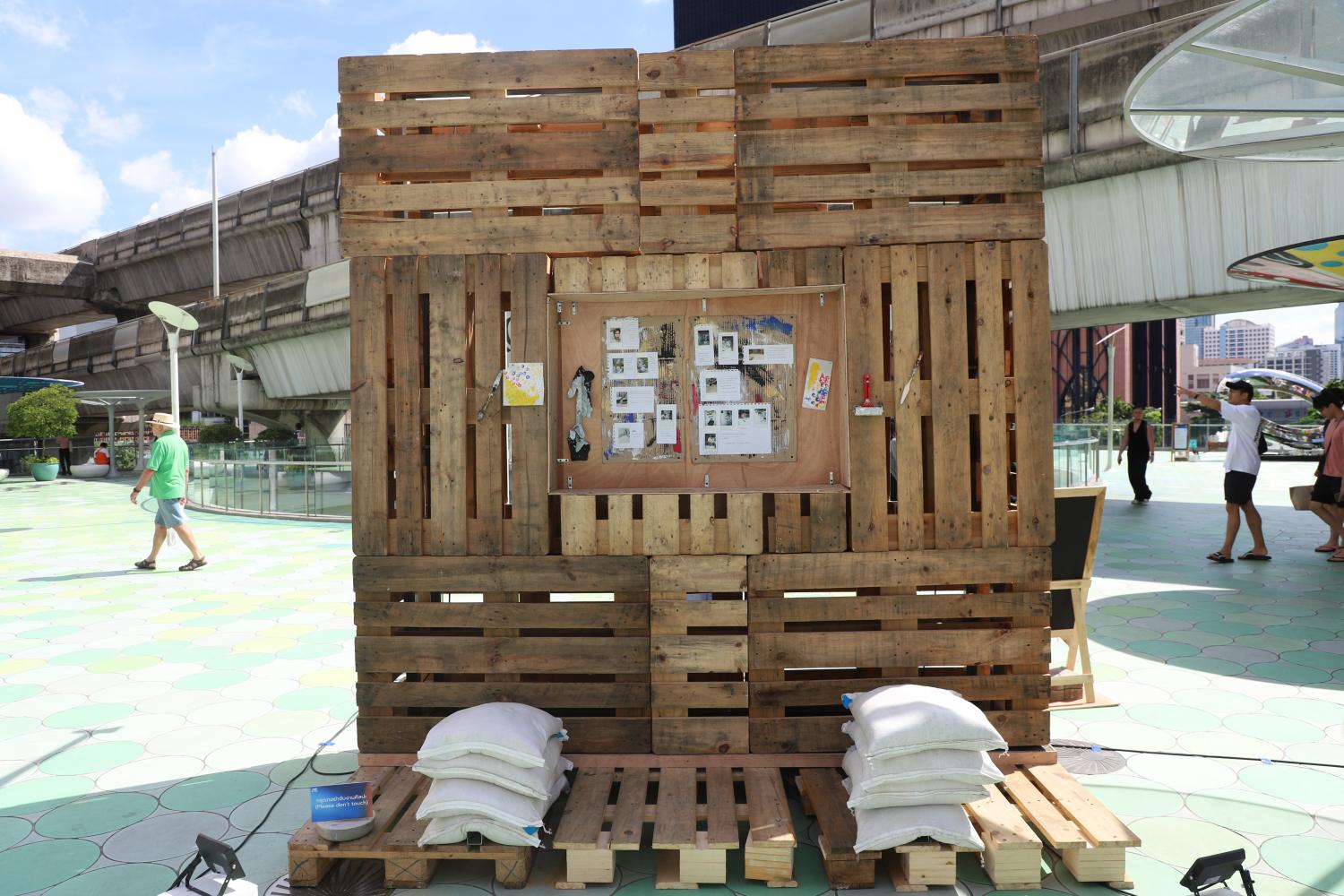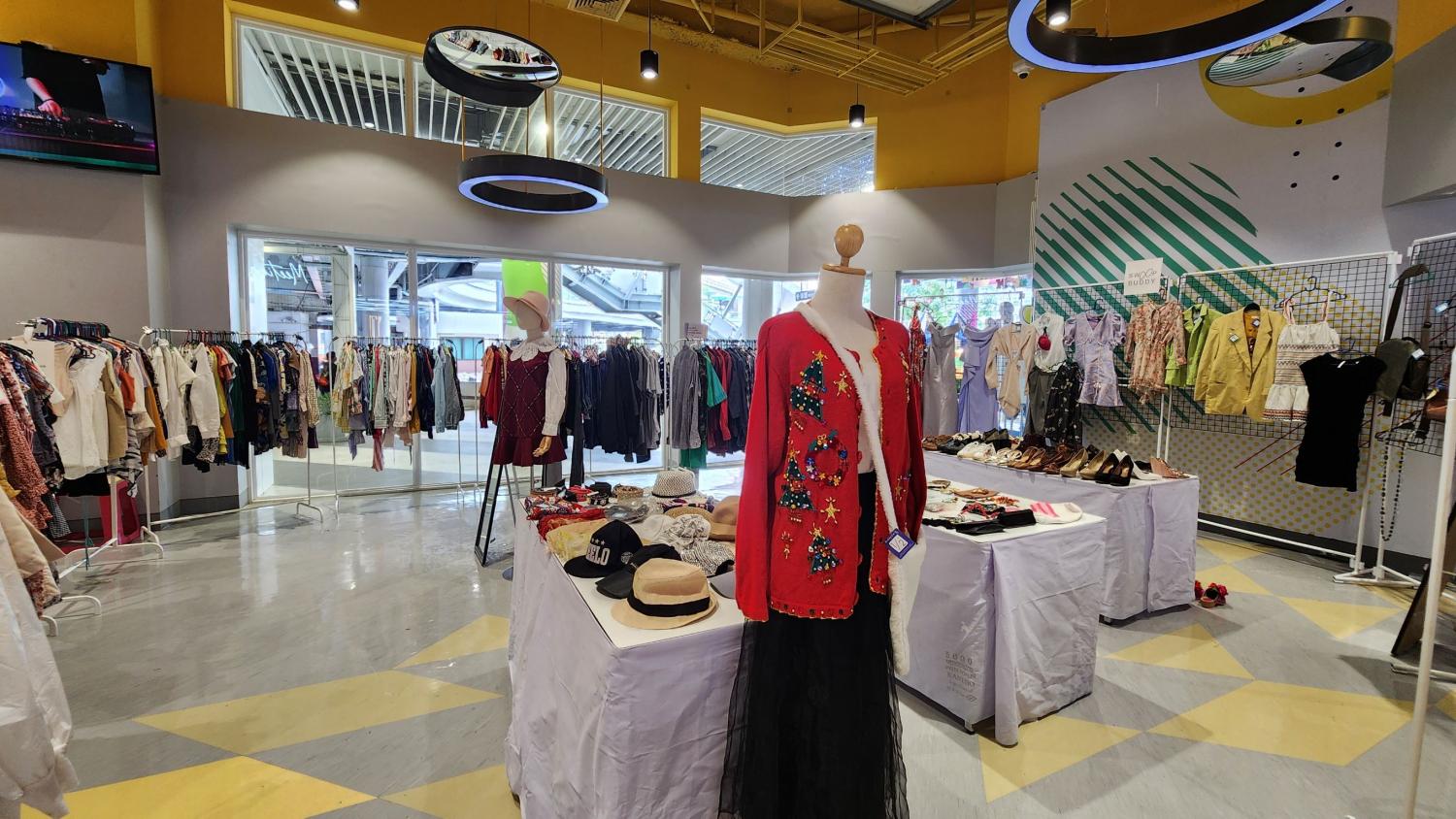While working as a Bangkok Metropolitan Administration waste collector, Nampu Toka often gets injured by sharp sticks, fish bones, needles, broken glass, tiles and other hazardous trash. He also encounters the unpleasant task of handling discarded items that should have been properly bagged or wrapped up in paper such as diapers and waste from patients.
When speaking about his injuries, Nampu, who is now a trash truck driver in Klong Toey district, showed a scar on his finger to a Life reporter. He explained that it resulted from a cut caused by a broken tile while he was separating trash.
"Waste collectors wear rubber gloves and cover them again with fabric gloves," Nampu explained. "These gloves help to reduce serious injuries. My shift for collecting trash from houses is 7pm to 5am, so my team races against time. Even though we try to be careful, we still get injuries every month," he said.
"The item that causes the most serious injuries are sharp sticks often used to barbecue meat and pork balls. These sticks can stab our blood vessels or get between our nails and lead to pus for weeks. To prevent injuries, sharp sticks and broken items should be wrapped in paper and be labelled with a warning. It would be nice if everyone were conscientious about sorting their trash."

Participants sort waste to match different types of trash in baskets.
To make the work of waste collectors easier, the Mahamitr Group, led by Allianz Ayudhya Assurance, organised the event "Think Throw… Life" which is taking place in front of Bangkok Art and Culture Centre and MBK's Lan Bai Bua until Sunday. The event aims to cultivate empathy towards waste collectors and promote responsible waste sorting among the public.
Patchara Taveechaiwattana, chief customer officer at Allianz Ayudhya, explained that since people in Thailand do not separate trash, a huge amount of waste goes to landfills, causing methane emissions that contribute to the greenhouse effect. At Allianz Ayudhya, the 1,400 staff members practise waste sorting into four categories -- food waste, non-recyclable waste, recyclable waste and clean waste. Since waste sorting proved effective at their office, Allianz Ayudhya aims to promote more practices to the public.
"If everyone separates trash, it can be managed properly and reduce the amount of waste going to landfills. 'Think Throw… Life' follows the lives of waste collectors and encourages people to consider how they would feel if they had a job in that line of work. After that, they may realise that when they throw away trash carelessly, they are making it difficult for waste collectors and may even be the cause of their injuries," explained Patchara.

Garden Of The Humanity by Wishulada Punthanuvong.
"The objective of the event is to raise awareness and change disposal behaviour. Each year, the Bangkok Metropolitan Administration spends 10 billion baht for waste management. If Bangkokians put effort into sorting waste, the BMA can reduce this expenditure and use the leftover budget for other benefits for Bangkok residents. I also believe that if people experience what it is like to work as a waste collector, they would have more sympathy or empathy for waste collectors," Patchara added.
The event features exhibitions and activities providing knowledge suitable for all genders and ages, aiming to change everyone's disposal behaviour. In the "Change Of Heart" room, participants watch a video which helps them understand how waste collectors work. A common misconception is that even if people separate trash, the collectors will mix it all together. Nampu insisted that waste collectors never mix trash. Instead, they always have to separate it.
"We sort trash into four categories -- organic waste, general waste or non-recyclable waste, recyclable waste and hazardous waste. We never mix trash together. We separate the trash in order to reduce the amount sent to landfills," Nampu insisted.
Next to the zone "Throw… Life", participants step into the shoes of waste collectors. They wear gloves and put their hands into a black trash bag to understand what it is like to touch random rubbish like a waste collector.
Sorting waste can be confusing because there are many categories. This zone helps participants understand the types of trash they pick from the bag. The Mae Fah Luang Foundation which achieves zero waste, sorts trash into six piles -- recyclable trash, stretchy plastic, hazardous trash, food waste, leaf scraps and waste-derived fuel/contaminated trash/toilet trash. These six piles are sent to different organisations for proper disposal to ensure that no waste is left behind.

Untitled by Jirayu Tantrakul.
Besides knowledge of waste sorting, partners such as Recycle Day Thailand, Cirplas and Wongpanit which have pickup services for certain recyclable items have their booths at the exhibition.
Additionally, the event exhibits pieces by contemporary artists Wishulada Punthanuvong, Jirayu Tantrakul, Ek Thongprasert, Pongsathat Uaiklang, Pratchaya Charoensuk, Patipat Chaiwitesh, Piyapa Vichiansan and Chalocha Ninthummachart. These artists are known for using waste materials. At the end of the exhibition, the artists will reuse the work or send it to be recycled.
"We invited artists to create pieces from waste material. There are descriptions of each piece to explain the idea behind their creations. We believe that these notable artists will raise awareness about waste sorting to a wider audience," said Patchara.
Some highlights include Garden Of The Humanity by Wishulada and Untitled by Jirayu. Wishulada created Garden Of The Humanity from discarded aluminum cans, bamboo and discarded balloon sticks without using spray paint or glue. The idea behind Garden Of The Humanity is to transform discarded items into a beautiful city landscape.
Untitled by Jirayu is an abstract installation created from the artist's everyday life items and second-hand materials. The description states: "The artist believes that nothing is trash." After the exhibition, Jirayu will send the materials to a woodshop.
To further reduce fabric waste, the final zone of the event, "Swoop Buddy: Exchange Clothes", is an area where people can exchange their clothes. The zone is organised by Swoop Buddy which is a second-hand clothing platform.

'Swoop Buddy: Exchange Clothes'. The Mahamitr Group
The chief customer officer at Allianz Ayudhya expressed high expectations for "Think Throw…Life".
"I expect all participants to be aware of waste sorting and change their disposal behaviour after they participate in the events. Some people told me that my expectations are too high, but I believe that if people watch the video about waste collectors, they will care more about their well-being. At the very least, we should have a sense of compassion and willingness to help others," said Patchara.
As a waste collector, Nampu feels honoured to be a part of the event.
"If possible, I hope that people will make the effort to sort their waste. Sorting will help waste collectors avoid serious injuries. Accidents can always happen. We have taken precautions to protect ourselves, but accidents still happen every month. If anyone can sort their waste, we would be very thankful," said Nampu.

